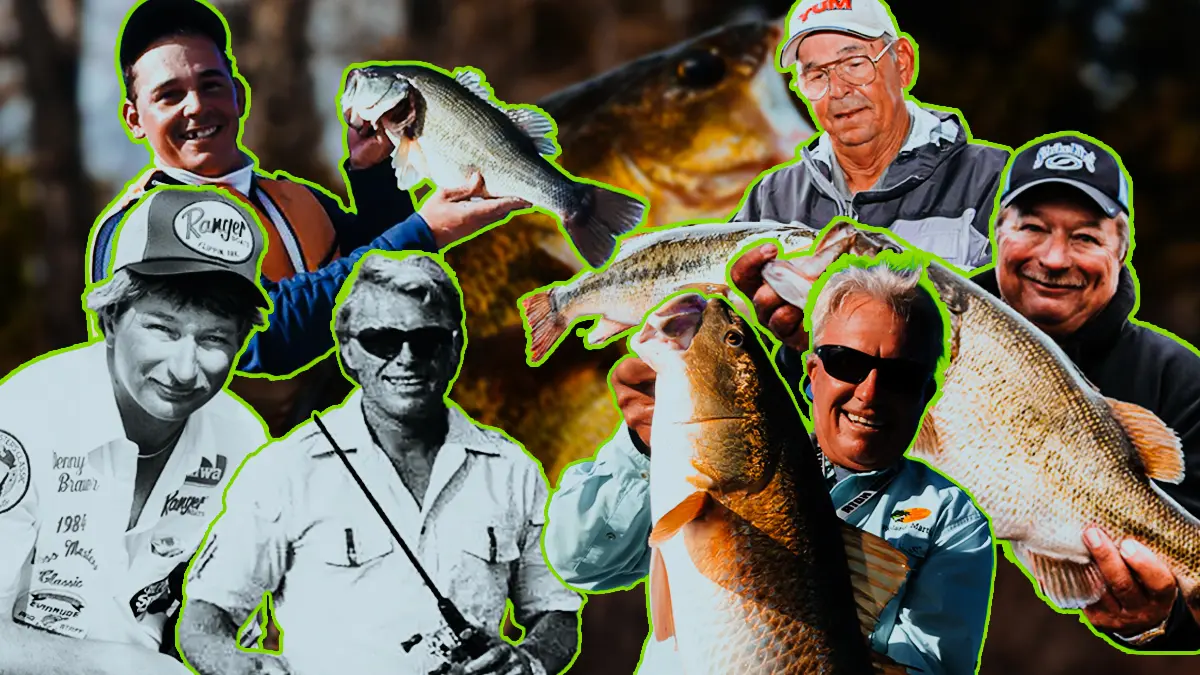Do you ever wonder what some of the legends of the pro bass fishing game are doing now that they’ve retired? They follow the same retirement plan that many retirees do. They go fishing.
Wired2Fish tracked down seven of the all-time greats of the game and we found out what they are up to.
Roland Martin
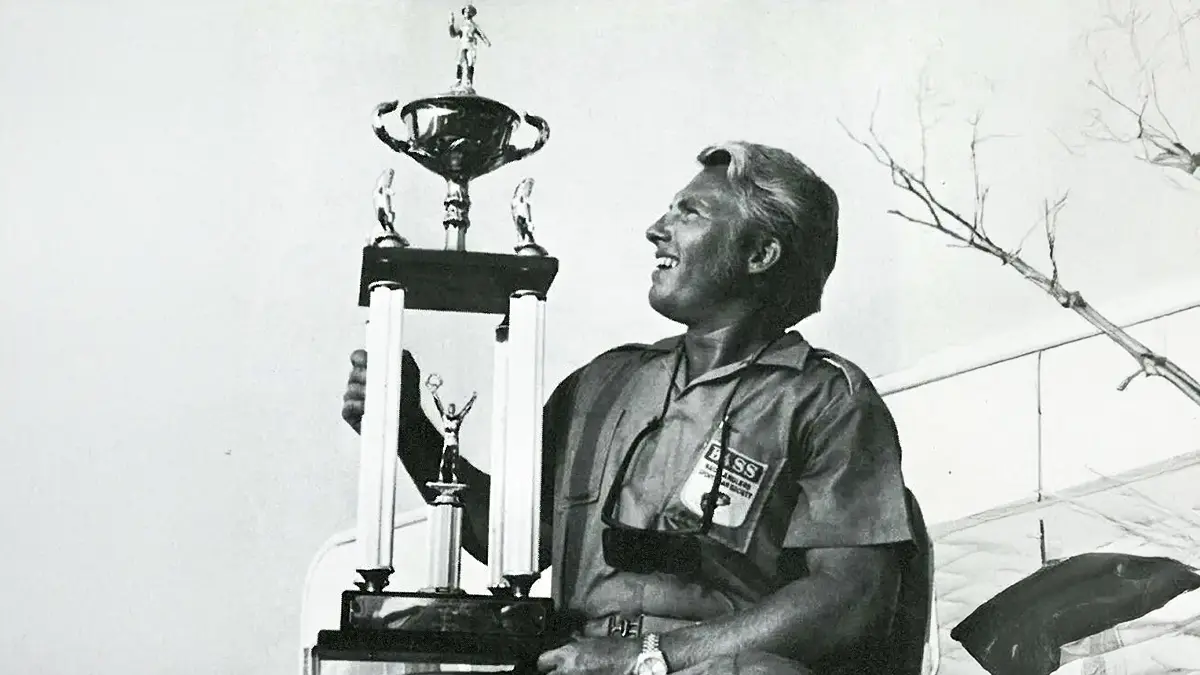
Roland Martin, one of bass fishing’s pioneers, just can’t quit. At age 84, he still guides on Florida’s Headwaters Lake and Lake Okeechobee for the hefty sum of $1,500 per day. And he’s still in demand.
“People want to catch that bass of a lifetime, and I can help them with that,” said Martin, who still lives in Florida. “When I get them in the boat, the first thing I ask them is,’ What’s the biggest bass you ever caught?’ They’ll answer and I’ll tell them, ‘Today, we’re going to try to beat that.’”
That’s no idle promise. Martin has long specialized in catching trophy bass in his home state and on the B.A.S.S. tournament trail.
He retired from the B.A.S.S. Elite Series in 2005 after 35 years on the tour. During that time, he won 19 national tournaments, finished in the money in 193 of the 306 tournaments he competed in, won nine Angler of the Year titles, and later was inducted into three halls of fame.
But that is only part of Martin’s story. He became the face of the sport through his Fishing with Roland Martin television show, which he still films today.
Martin also has a YouTube channel called Roland Martin Outdoors, and continues to give seminars and make appearances.
Bobby Murray
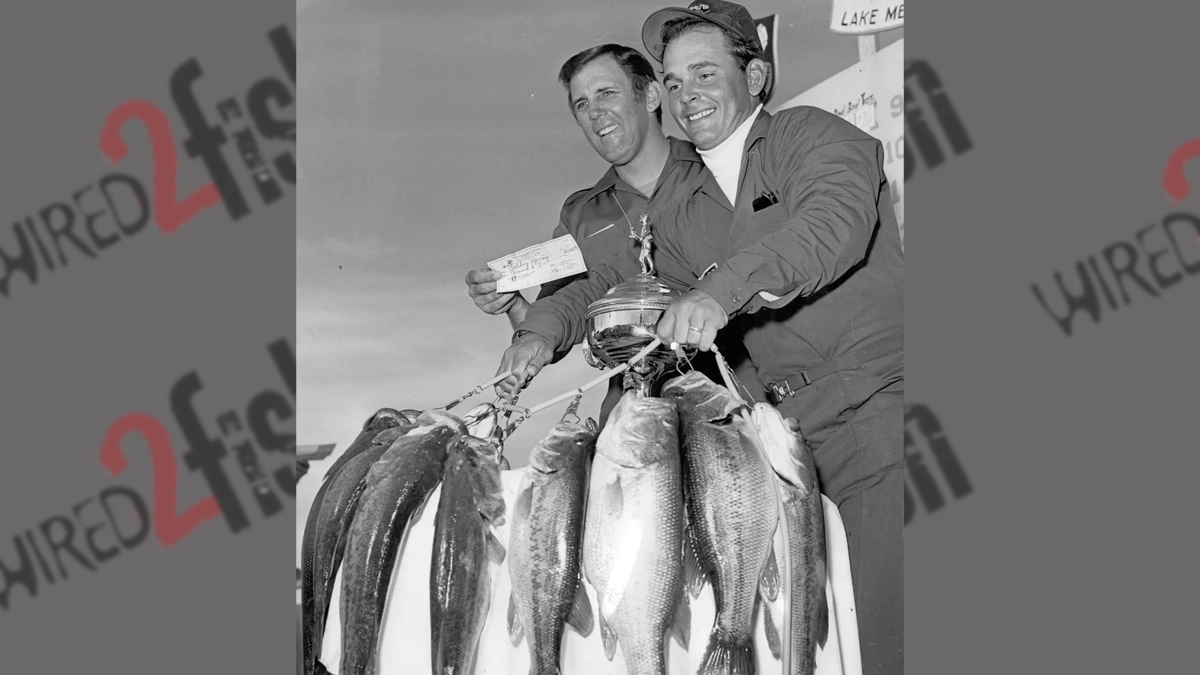
It’s been 53 years since Bobby Murray won the first Bassmaster Classic, but he still remembers it well.
If you’re looking for a story filled with pageantry, thousands of fans, and huge celebrations, you’ll be disappointed. The way Murray tells it, the Bassmaster Classic had humble beginnings.
“We didn’t know in advance where the Classic was going to be,” said Murray, 79, who lives in Hot Springs, Arkansas. “Ray Scott loaded us into a plane and didn’t tell us until we were in the air that we were headed for Lake Mead.
“There weren’t many spectators there. I think I could have fit them all in the bed of my pickup.”
Nonetheless, it was the start of something big and it put Murray on the path to a successful career. He won $10,000 for taking the championship on a lake he had never seen before and he went on to ride the B.A.S.S. wave of popularity.
He retired from competitive fishing in 1982 after a Hall of Fame career. He became a manufacturer’s rep for fishing and hunting products for 10 years before retiring altogether.
But he hasn’t abandoned his love for fishing and hunting. He said he continues to fish for bass and crappie at least two times a week and he still loves to hunt deer.
“I’m truly blessed,” he said. “Fishing has always been part of my life, and the passion is still there.”
Denny Brauer
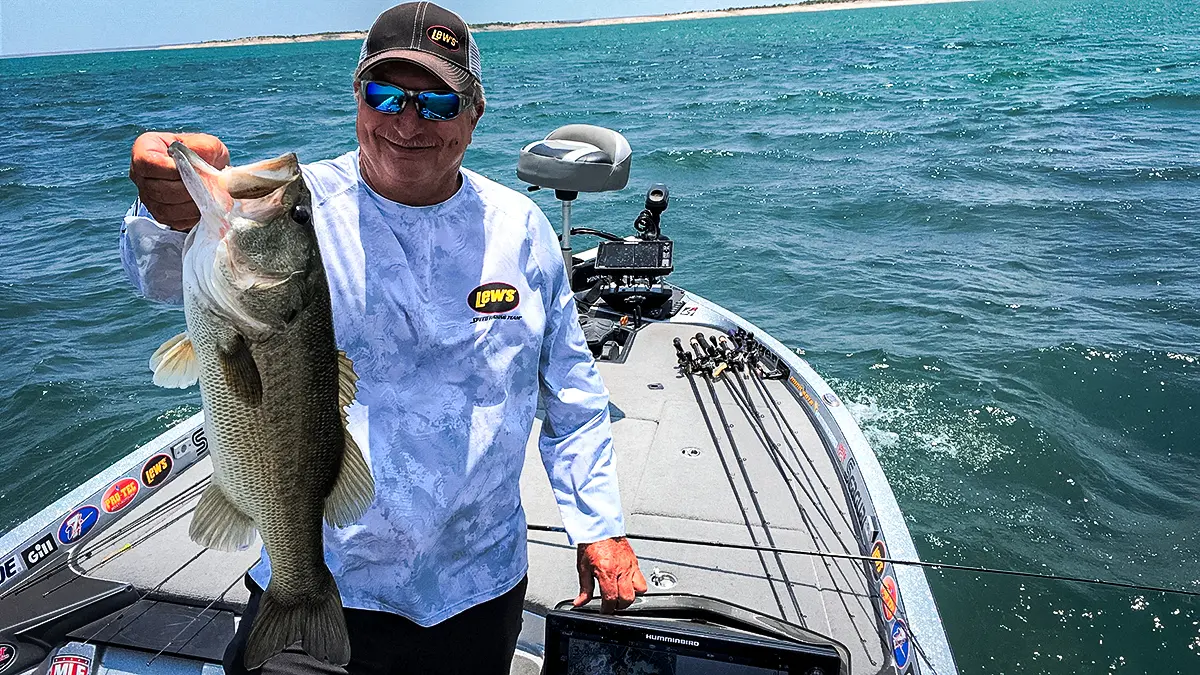
When Denny Brauer retired from professional bass fishing following the 2012 season, he had few regrets.
He built a legendary career, winning everything from the Bassmaster Classic to Angler of the Year titles. He was so well-known that he was the first pro fisherman to appear on a Wheaties box and to face the national spotlight on The Late Show with David Letterman.
But it was time to go.
“After 30-some years on the road, there was some burnout,” said Brauer, 76, who now lives near Del Rio, Texas. “The scheduling, the long hours of practice, even the ethics of some of the fishermen — it all played a part.
“My wife (Shirley) and I were ready for a more laid-back lifestyle.”
They found that lifestyle by building a house overlooking the Amistad Reservoir, a 64,900-acre body of water that straddles the Texas-Mexico border. After living for years at Lake of the Ozarks in Missouri, they opted for a place that had warmer winters and bigger bass.
Amistad has long been recognized as one of the best big-bass producers in the nation, and Brauer has seen the proof on the end of his line. He has caught double-digit bass there, fishing with friends or on his own.
He fishes an average of five times a week, on his own schedule. He doesn’t guide, but he occasionally donates guided trips for charity or his longtime sponsors.
He looks back on a career filled with highlights. One moment stands out: the week in 1998 when he finally won the sport’s crown jewel, the Bassmaster Classic.
“The Classic title had eluded me so long that it was frustrating,” Brauer said. “It was more of a relief than anything when I finally won.”
George Cochran
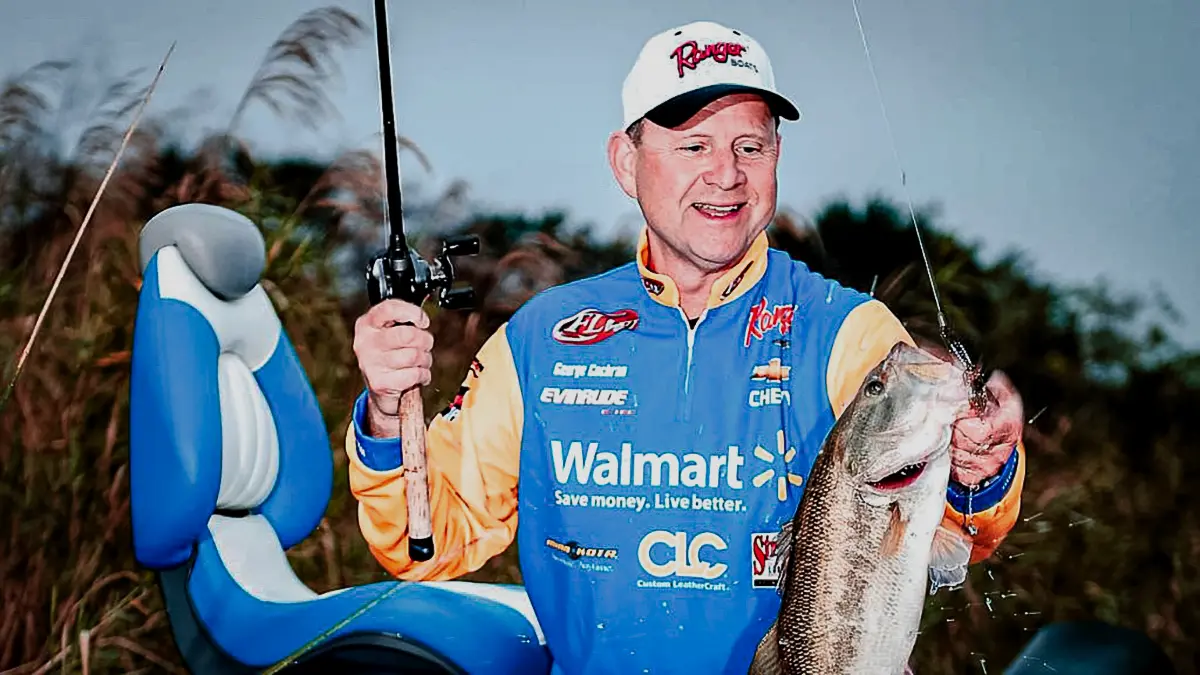
It’s hard to believe, but George Cochran has been away from the professional bass fishing game for12 years. He was 62 when he decided it was time to retire after a 32-year career.
“I loved what I was doing, but I wanted to spend more time with my family,” he told Wired2Fish. “For the first five years, I really missed it. But now, I have a different life.”
That different life consists of fishing for stripers and helping his son, David, with his guide business on the lakes in the Hot Springs, Arkansas area.
From the first of March to the end of November, father and son are busy taking customers on Lake Ouachita, Hamilton and Catherine in search of trophy fish.
“Stripers just fight like crazy,” said Cochran, 74. “We get people all over the country who want to fish for them.
“You should see the look on their face when they land a striper that weighs 20 pounds or bigger.”
Cochran occasionally guides for largemouth bass, too, but that is more challenging, he said.
“I’d say 50% of the customers I would take out didn’t know how to cast,” Cochran said. “And that makes it tough when you’re fishing cover.”
In the fall and early winter, Cochran turns his interest to hunting: chasing deer, ducks and squirrels. It’s a good life, and a great way to spend the retirement years, Cochran said.
He can look back at a long career in which he reached stardom. Nicknamed “Gentleman George” because of his unassuming demeanor, he is one of the few anglers to win championship tournaments on both of bass fishing’s major circuits: B.A.S.S. and FLW.
He won seven Bassmaster national tournaments and another two FLW events. A proficient shallow-water fisherman, he was always a contender in tournaments he fished.
But the game has changed, he said.
“Now, fishermen have screens that look like TVs all over the boat,” Cochran said. “It’s a lot different than the days I fished.”
Basil Bacon
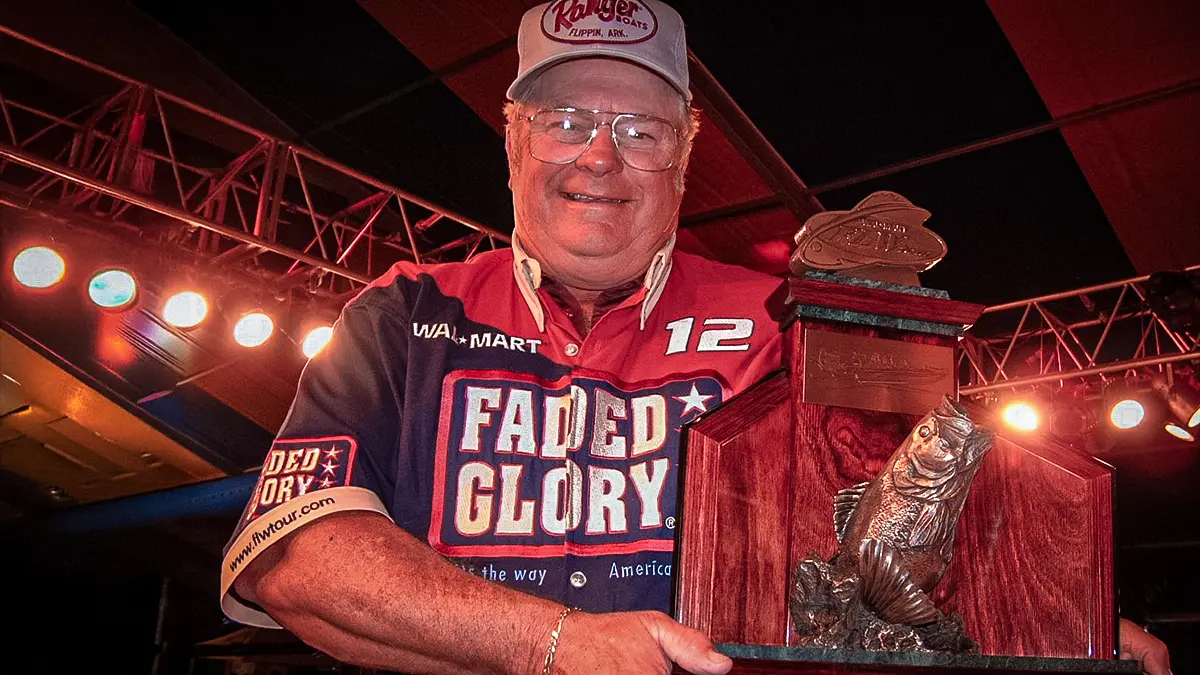
Basil Bacon went out on top. He won an FLW national tournament in May, 2002. A month later, he decided to retire.
“I had turned 65, and I thought that was a good time to walk away,” he told Wired2Fish.
He then became a sporting-goods salesman and later owned a furniture store. He even invented a walnut cracking device called Grandpa’s Goody Getter.
Today, at age 88, Bacon still lives in his longtime hometown of Springfield, Missouri, and still fishes. But these days, he is chasing crappie, not bass.
“Catching big crappie is just as much of a challenge as bass fishing was,” Bacon said. “The nice thing is, you get a lot more bites. And you can eat what you catch.”
Bacon still reminisces about his 32-year career in professional bass fishing. He got a chance to watch the sport evolve. Consider that he started out in a 15-foot-long bass boat with an 80-horsepower motor. “It was quick, but that’s about it,” he joked.
Boats in the early days had little in the way of electronics and only crude trolling motors. Still, Bacon made due with innovations that made a lasting impression.
For example, he was one of the first to buy a Ranger bass boat. But he was disappointed to see that the boat didn’t have a casting deck at the bow, so he built one of his own.
Bacon had just learned to flip from one of the masters of the technique, Dave Gliebe, and he needed room at the front of the boat to make the pendulum casts.
He was one of the pioneers of working the popular Zara Spook topwater bait and spinnerbaits, and he used those baits to do well in tournaments.
He recorded more than 125 top 10 finishes in the major tournament circuits he competed in, and was inducted into the Bass Fishing Hall of Fame in 2007.
“So many memories,” he said. “We had a camaraderie that couldn’t be beat. I love getting together with some of the original guys and just reminiscing.”
Stacey King
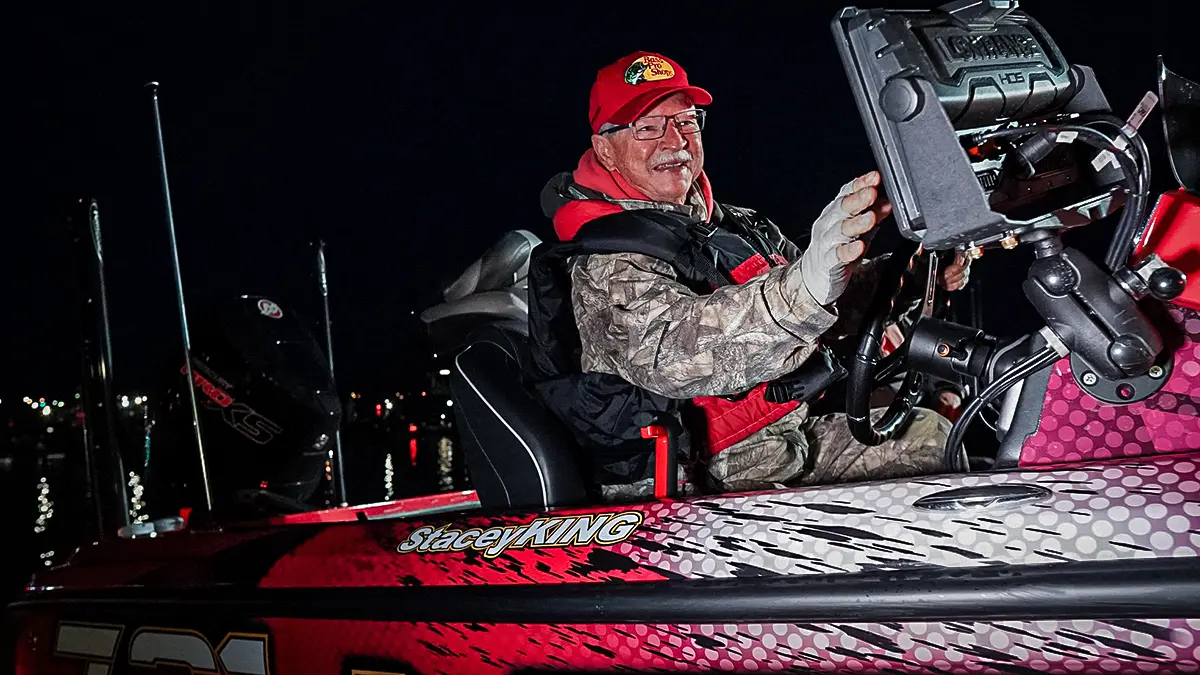
Stacey King is finally starting to enjoy his retirement years.
The former Ozarks guide has been beset by health problems for almost 20 years. He had open-heart surgery in 2007, then heart-valve replacement in 2011. Three years later, he underwent treatment for cancer doctors found in his neck.
Those health scares persuaded King to retire about five years ago after a long career on the B.A.S.S. and FLW tours. Today, he has recovered and is enjoying life near Table Rock Lake, where he has spent most of his life.
“I figured out that I spent five years of my life in motel rooms when I was fishing,” said King, 75. “That’s a lot of time on the road. All the traveling was hard, but that’s part of professional bass fishing.”
Despite the hardships, King said he “loved every second of it.”
King, for years one of the top guides on Table Rock, got into B.A.S.S. in the mid-1980s when the tournament craze was just setting in. He finished sixth that year in the Missouri Invitational at Truman Lake, and his career took off.
He went on to qualify for 16 championship events: 12 Bassmaster Classics and 4 FLW Forrest Wood Cup events. He was inducted into the Bass Fishing Hall of Fame in 2015.
Jay Yelas
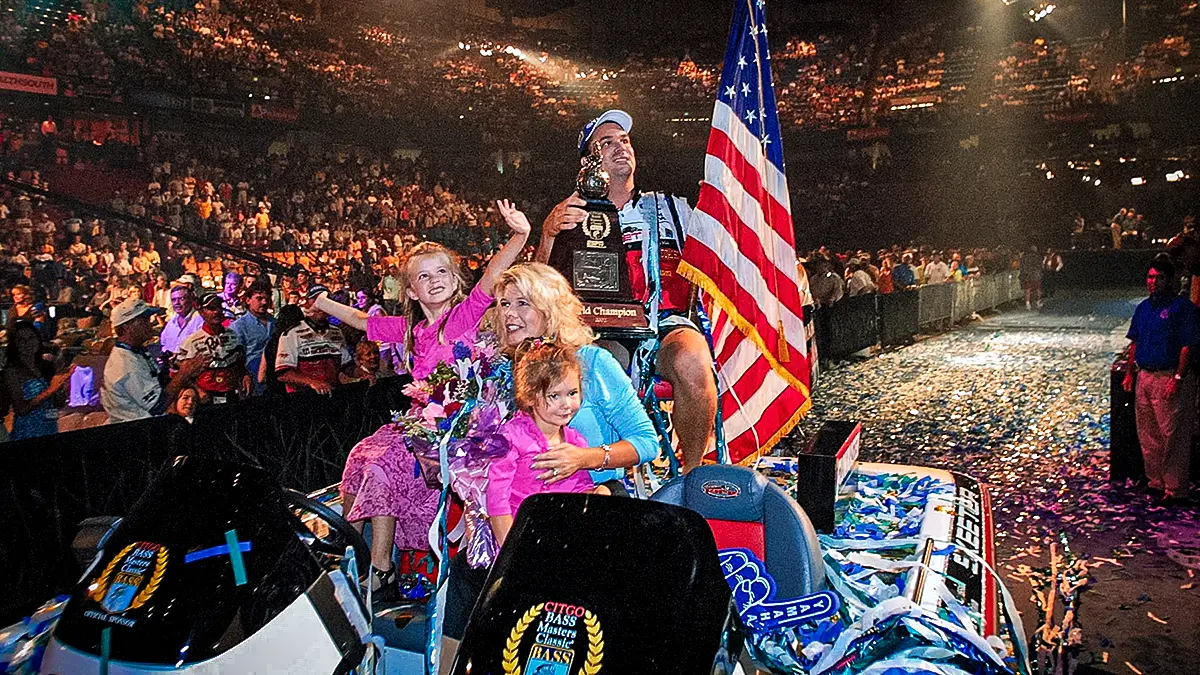
Jay Yelas likes to describe his life story in two chapters.
“The chapter of my life fishing professionally has closed,” he said. “A new chapter has opened.”
That second chapter consists of his job as executive director of the C.A.S.T. for Kids Foundation, which is devoted to providing special needs children with fishing experiences.
Yelas retired from fishing at the end of the 2022 season, a decision made easier after he developed tendonitis in both arms.
The pain was so bad that he had to withdraw mid-event during a Bassmaster tournament at Lake Fork in 2022. That was disappointing for Yelas, who was at the prime of his game. He won the Classic in 2002 and took Angler of the Year honors a year later.
He had one stretch where he qualified for 16 consecutive Bassmaster Classics. He also excelled during his time with FLW, where he won two Angler of the Year titles.
Now, Yelas has turned the page and is focused on passing on his passion for fishing to helping children with special needs.
The C.A.S.T. (Catch a Special Thrill) Foundation holds events across the nation to give disabled kids ages 6 to 18 a chance to experience the excitement of fishing.
“You go to these events and see what it means to these kids,” Yelas said. “We celebrate these kids and show them they are loved and valued.
“Some of them have never fished before and show up at these events timid and wondering if this is something they can do. But by the end of the day, they have big smiles on their face and they’re full of confidence.
“That’s what makes this all worthwhile.”


